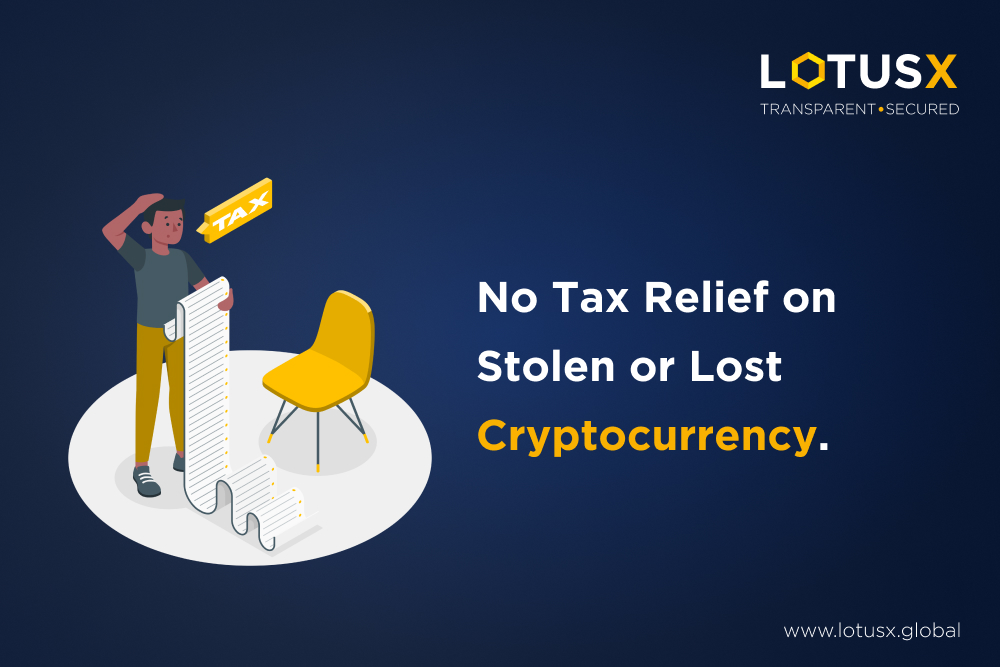There has been fuss and confusion around the crypto legality, which we have cleared in our earlier blog, and around taxation! Avid investors need clarification if the crypto loss is tax deductible or only the profit is taxable. Read on as we put an end to your dilemma.
Is Cryptocurrency a Legal Tender in India?
The Indian government has not yet made cryptocurrency a legal tender, and there are several reasons for this.
- Financial stability concerns: The Reserve Bank of India (RBI) has expressed concerns that cryptocurrency could pose a threat to financial stability. This is because cryptocurrencies are not regulated by any central authority, and their prices are volatile. If the cryptocurrency were to become legal tender, it could lead to a surge in speculation and price volatility, which could have a negative impact on the economy.
- Money laundering and terrorism financing risks: The government is also concerned about the potential for cryptocurrency to be used for money laundering and terrorism financing. Cryptocurrencies are often used to transfer funds, which makes them attractive to criminals anonymously. If cryptocurrency became legal tender, it could make it easier for criminals to launder money and finance terrorism.
- Lack of consumer protection: The government is also concerned about consumer protection in the cryptocurrency market. No laws in India specifically protect consumers who invest in cryptocurrency. This means that if an investor loses money investing in cryptocurrency, they may not be able to get their money back.

The government is currently addressing the presence of cryptocurrency by regulating it. The next part of the blog will cover taxation on crypto assets in India.
What is the tax implication on profits generated from crypto transactions?
Profits generated from crypto trading in India will be taxed at 30% plus an additional surcharge and 4% cess, per the Income Tax Act under Section 115BBH. This tax rate applies to all private or commercial investors who transfer digital assets during the year.
There are no exemptions or deductions available for crypto taxes in India. This means you cannot deduct the cost of acquisition, mining expenses, or any other costs associated with your crypto investments. You also cannot offset crypto losses against any other income.
In addition to the 30% tax on profits, a 1% TDS is applicable on transferring crypto assets. This means that if you sell crypto worth more than ₹50,000 (or even ₹10,000 in some cases) in a single financial year, the buyer will be required to deduct 1% TDS and remit it to the government.
The Indian government has also clarified that gifting crypto assets will attract tax in the hands of the receiver. This means that if you receive crypto as a gift, you will be liable to pay tax on the fair market value of the crypto at the time of the gift.

Is Cryptocurrency Loss Tax Deductable in India?
No, crypto losses are not tax deductible in India. Section 115BBH of the Indian Income Tax Act, 1961, specifically prohibits offsetting crypto losses against any other income, including gains from cryptocurrency. This means that if you incur a loss on the sale of a cryptocurrency, you cannot use that loss to reduce your tax liability on any other income you may have.
The same is true for lost or stolen cryptocurrency. The Indian government has not yet released any guide on how to treat lost or stolen cryptocurrency for tax purposes, but likely, any losses incurred in this way will also be non-deductible.
This relatively harsh stance on crypto losses will likely be a significant burden for investors who incur losses on their crypto investments. However, it is important to note that the Indian government is still relatively new to the world of cryptocurrency, and it is possible that the tax rules could be changed in the future.
Here are the pointers to keep in mind about crypto taxes in India:
- The tax rate on income from virtual digital assets (VDAs) transfers is 30%.
- There is no deduction except the acquisition cost when reporting income from transferring crypto assets.
- Losses incurred from one VDA cannot be offset against income from another VDA.
- Crypto/VDA gifting will be subject to tax in the hands of the receiver.
Financial Takeaway!
If you are an Indian investor considering investing in cryptocurrency, it is important to be aware of the tax implications. You should consult a tax advisor to get specific advice on your circumstances. Hope the blog was informative for you. If yes, please share it with your friends and family who may be interested in crypto investments. Until then, download the LotusX app and begin your investment journey like a pro!




